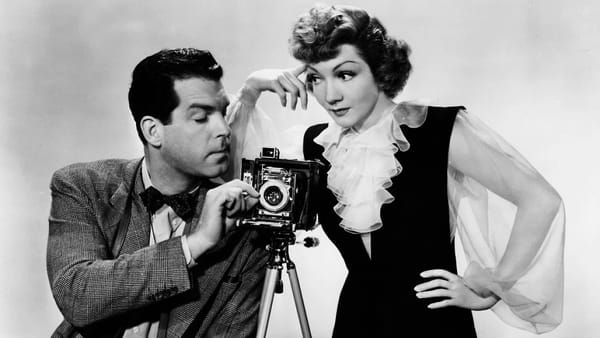My Imaginary Country

On watching Patricio Guzmán’s My Imaginary Country in Goa, India
The film wasn’t the main thing that day. What really counted then was the warmth of the air and the noise of the traffic on a busy road — a man hurtling past on a Vespa carrying two multi-packs of Red Bull; a family of three on a Vespa too, child at the front, father driving, mother holding on at the rear — and a riot of flowers, hot pink and violet, trailing over a whitewashed garden wall. What counted above all was that, looking vainly for a cash machine along that dusty thoroughfare by my hotel, where a woman was selling fruit from a tub, and shacks offered soda and cashew nuts, and smells of spices emerged from cafes that displayed cricket matches on a big screen for a smattering of viewers eating a hot Goan thali, I wandered briefly down a gravelly road that became a path and then an alleyway, and I went no further because I was pressed for time — I hadn’t withdrawn my rupees and had to head to my screening at the festival — but I knew that the alleyway led to the sea, and I thought to myself that, as discombobulated as I was in this frantic new land, all paths to the sea are the same around the world. Land begins to commingle with between-land, tapers off into pebbles or sand — still a few blades of grass underfoot, perhaps a few houses around at this point, and in the air a distant hum of waves and the caw of a seagull overhead — and then the path is taken over by beach, and the sea is suddenly before you, magnificent, just magnificent, magnificent.
The film wasn’t nothing that day, but it wasn’t everything. More than ever, sitting down to watch a film in a foreign country — I mean foreign in the sense that, more than in any place I have ever been to, on my first day in India I felt displaced and lost, I couldn’t get my bearings, I didn’t know how to do anything, I felt so stupid and white — the idea of reviewing a film dispassionately seemed the craziest thing in the world. Here, as the credits went up on My Imaginary Country, Patricio Guzmán’s documentary about the riots of 2019 in Chile, I wasn’t looking with my usual eyes, my usual brain; my mind was racing still with an overload of sensory messages; my body was fighting jet lag with caffeine and tattered willpower. Guzmán’s camera, a steadily rising drone shot over a gathering crowd of demonstrators marching down a boulevard, showed me Santiago, a busy city I don’t know, which I was watching in a busy city I didn’t know, and in my head I rehearsed the map of the town I had tried to commit to memory as I would have no WiFi with which to guide myself after the film. I tried to view my route from above.
I had been reading Ducks, Newburyport by Lucy Ellmann: a dizzying, difficult novel, a 1000 page stream of consciousness in which the narrator’s memories collide with the mundanity of the everyday, where snippets of songs heard on the radio interrupt her mid-sentence, and where words and brand names constantly recall other words and associations and jokes to her harried, racing mind — a mind of the internet era, where everybody is always on. Here, the narrator if she were me might say to herself, Goa. That’s a go-er. Goner. Gower, David Gower, the cricket player, the one with the curly blonde hair — and might recall a very vague half-memory of having half an hour to spare in a town, what town was it, with my father, when I was six or seven, while my mother shopped for clothes, and somehow adventuring into a sports ground where a cricket match was playing, and watching a few minutes of it, and I think Gower was playing that day for some reason, and then just as soon we were gone. What were we doing that day? Why were we there? Later, as I walked from the cinema through the city of Panjim, I would see a rough field under spotlights, and in the distance a group of young men gathered around a cricket strip, shouting to one another to run him out, get him out.
Reading Ducks, Newburyport was both a dazzling experience and a somehow crushing one, reminding me of the constant rush in my own head, which at times in recent years has become close to unbearable — the onslaught of things I’ve noticed and things I’ve forgotten to do, of unread emails and WhatsApps from friends, of news stories that devastate me for a minute before some horny guy pops up with a dick pic on Grindr, and then it’s back to the news story, the one about migrant workers who died while building stadiums for the World Cup, but hang on, here’s that horny guy again, he wants to know if I like to suck. Ducks, Newburyport takes place in the same world as Patricia Lockwood’s novel No One Is Talking About This — whose rhythms are even more frantic, where the free associations are all the more oppressive for the fact that the narrator actively participates in this shit and enjoys it, enjoys the hum of chit-chat and the cliquey, Dadaist wit of the internet, which consumes her mind at times, and which, over the course of the book, gives way to something different, slower, more difficult; gives way to a painful ordeal in what we call ‘real life’, or irl, as if the internet were a dream or a fugue state.
So here I was in India for the first time, having landed 12 hours beforehand, watching — could anything be more insane? — a Chilean documentary on a big screen at a festival. Watching My Imaginary Country (that title!) here, with an Indian audience, I felt again the weight of my own subjectivity, and the different forces and thoughts I bring to bear on a film; the thin conduit of my own sensibility. I felt my own queerness keenly here: Guzmán’s film constantly centres women as the leaders of the protests that engulfed Chile in 2019, and also centres queerness, depicting an LGBTQ congresswoman taking the oath in a beautiful coda after the protestors have taken power. Guzmán’s film throbs with dissident togetherness: if the filmmaking itself is sometimes a little rote, alternating talking heads with footage of revolt, the images seized are electrically charged with the very idea of protest, of community coming together in anger but also in celebration and joy. Guzmán repeatedly depicts imagery in which one individual, joining a group of other individuals, in song or in marching or in tearing down a wall, makes it by their presence a crowd, a force of its own. Protestors gather at a wall, and each person taps on it, with a coin, or a lighter, or their own nails: Guzmán’s sound edit is brilliant here, picking out each dull tap, each scritter-scratter on the surface of the wall, and then meshing these sounds together, showing how each little noise contributes to a collective din.
Watching these scenes of protest, a white Englishman in India, I thought of course of my own country, and wished that we could harness that collective rage to fight against Tory rule; I longed for the camaraderie of protest that I saw here, for the way these enraged people danced and sang, clanged pans, performed their fury into the night, lighting up the city with flares and torches. What would it take, I wondered, for my own country to rise up — how many more Covid deaths, how much more Tory cronyism and corruption, how much more of an attack on our institutions and the rights of workers and minorities, would be required for us to do something?
The spirit of rebellion that the film is utterly seeped in also weighed heavily in Goa, as I headed out into the city after the film. So much rage in My Imaginary Country stems from police brutality, as the police blindly enact state violence. On the streets of Panjim I saw officers everywhere, all of them men, many of them young, tricked out in elegant off-white uniform. Everywhere, I saw the police — not doing anything, but loitering together in a little group; perhaps a lone officer would be sitting on a plastic chair, stationed by a rickety kiosk under a tall tree with long dangling branches. I never heard a siren, never saw the police interact with anyone: they were just there, on street corners, constant reminders.
I also reflected, walking through town after seeing the film, on how few women I had seen since arriving: there were some selling wares by the road; one or two walking along; but mostly, in the public sphere, the world was a swarm of men — men watching the film with me, men driving the vans and taxis outside, men being police, men just hanging out on a street corner. Women, I supposed, were indoors and largely out of sight. How did My Imaginary Country play here, this documentary about the liberation of women, the uprising of a sisterhood against the state? In an utterly electrifying sequence, Guzmán films crowds of women, veritable hordes of them, women of all ages, of all races, as they shout out the clarion call of the protests, a song called “Un violador en tu camino” (A Rapist in Your Path). Standing together, all of them blindfolded, they cry out in unison, to the beat of drums, “Y la culpa no era mía, ni dónde estaba ni cómo vestía” (It wasn’t my fault, not where I was or how I was dressed”). They carry on, dancing, screaming: “El Estado opresor es un macho violador” (“The oppressive state is a male rapist”). Impossible not to be set on fire by the blazing fury of this outcry against rape culture, boldly drawing a parallel between state control and oppression of women — except, how does this exercise in rebellion play to different eyes than mine, watching with their own history and culture, their own differently organised world?
Back out on the street following the charged, uplifting screening of My Imaginary Country, where I had been placing myself amid the protests I was witnessing, feeling the surge of energy around me, I was once again alone, and my stomach was now ablaze with hunger, my body starting to crash. I trudged along a road as night began to fall, hoping to ‘experience India’, to ‘see the real Panjim’, but saw only some houses, more Vespas, a restaurant selling curry by the kilo. Wandering around with no internet, so white and pathetic and beginning to feel a little exhausted and sorry for myself, I felt like Lucy in A Room with a View — that silly, hopeful English rose in search of an adventure but afraid of all the dirt and the possibility of violence — when she adventures into Florence without the guidance of her Baedeker.
Eventually the road led to the sea, which told me I must be near the hotel I was looking for; I looked at the last of the setting sun, marvelled at a group of young people wading in the water up to their waist while still dressed, and took photos of two bony-shouldered cows traipsing along the shore. I asked two nice young boys for directions, and they put their arms around me as we walked together, saying, “Hey bro! How are you bro!” and I said, “I’m OK, you know, I’m alright”, and they said, “You like ganja bro?” and I said, “Yes, but not now, I’m good, thanks man,” and finally got to where I was heading, and the WiFi came through, and my phone lit up with notifications.



